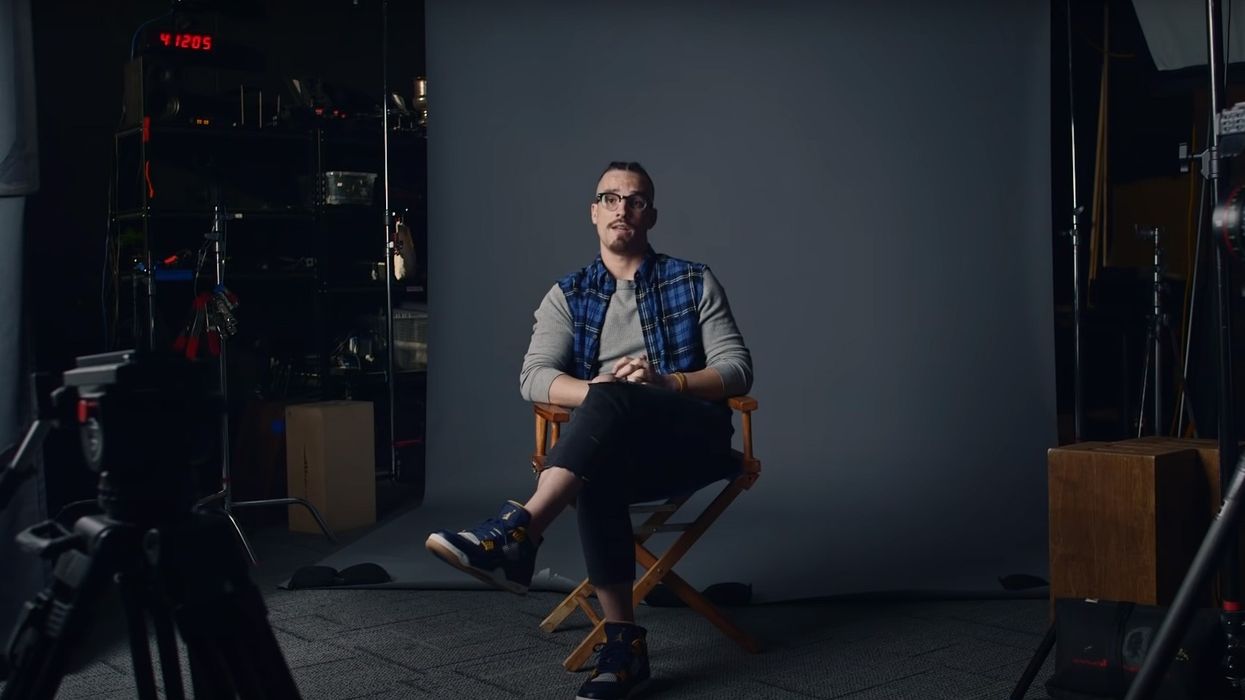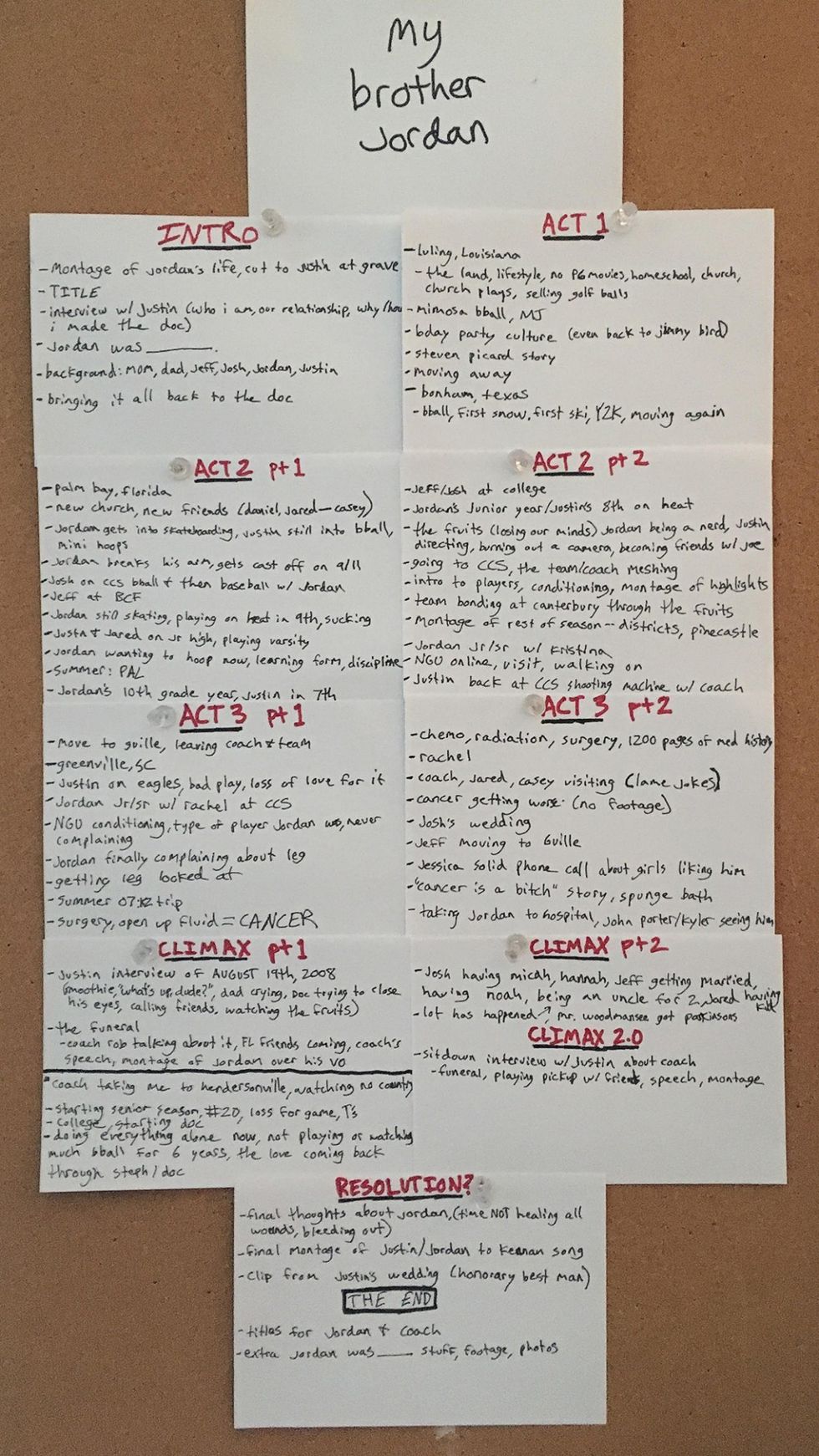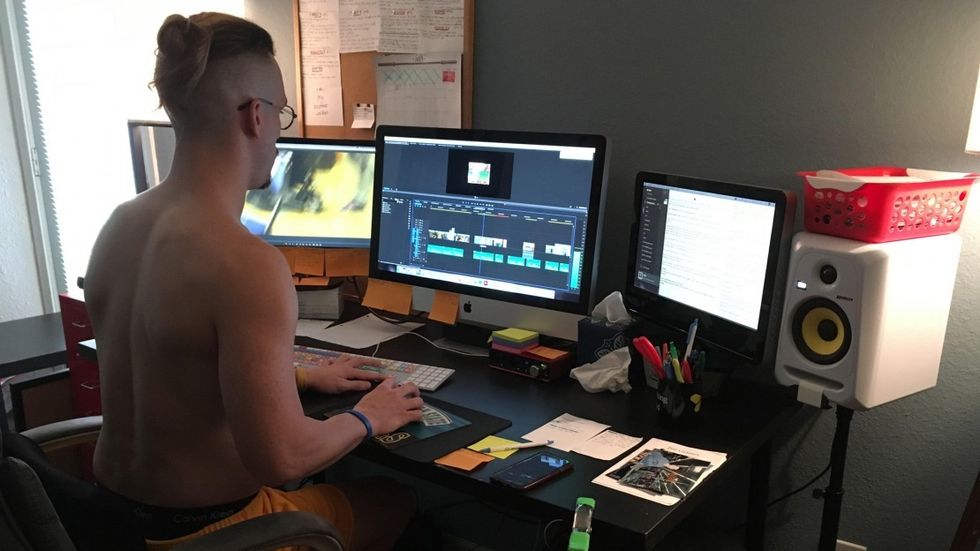This Filmmaker Used the Rebel Spirit of Indie Film to Bring His Brother's Tragic Story to Life
"I just put gas in the car and drove to the story."

When it comes to independent filmmaking, being rebellious kind of comes with the job. Trailblazers like Robert Rodriguez have shown us all that big money comes with a short leash, so if you’re willing to produce your work on a very small budget, you don’t have to wait for producers to give you a green light.
Eight years ago, filmmaker Justin Robinson started his journey documenting the life of his brother, Jordan, in this exact spirit. I mean, you can’t even call My Brother Jordan a passion project. It’s more of a calling.
Studying medical documentation, culling through 450+ hours of footage, and working late into the night despite having a day job, Robinson spent his own money digitizing VHS tapes and driving across the U.S. to interview the people who knew his brother best in order to share this important story with the world.
I was able to chat with Justin about his film and what he did to bring the story to life, but before we get to that, I’d like to invite you to watch this truly heart-wrenching story, one that is universal in so many ways, and proves that the bond between two brothers is eternal.
NFS: What was your process for recording the interviews?
Justin Robinson:Since I knew the story better than anyone, (I was actually there for almost every single moment of Jordan’s life), I often interviewed from the point of a detective or archaeologist, as if I was trying to get pieces of the puzzle that told the full picture. And since most normal people aren’t comfortable around cameras and lights, no matter how small, I spent a good bit of the interview process opening up my own heart about Jordan to not only have a beautiful conversation but to show that I’m willing to go the distance with the interviewee. Death is not easy to talk about for most people, so I was trying to let them know, I’m physically here, in the room, to talk about it. And that I want to talk about it. That’s why I made the documentary - to talk about him.
Out of the 103 interviews, there were 7 that I didn’t get to do in person because they were too far for me to go. I reached out on social media if there were any cinematographers in those specific areas and thankfully so, a handful of generous filmmakers lent their time and gear to help me tell this story. The process was then me talking to the interviewee on FaceTime from a different state, and often, a different time zone.
NFS: How have you come up with a story structure?
Robinson: The structure was fairly unromantic. It was a chronological look at Jordan’s 20 years of life (5 days short of 21 years) and then it would follow my own journey since his death. But there was a sad surprise late in the making of this film, which became somewhat of an extra climax or another “all is lost” moment. Below is my outline/structure that hung above my computer for years.

NFS: What have you done to minimize the costs?
Robinson: There was no external budget for this, just my tiny freelance wallet. I owned a 5DMKII and a few Canon L series lenses, along with a little fluorescent softbox from eBay. But funny enough, I didn’t even own a lav mic or any audio gear for that matter, so I often borrowed a lav mic from friends for spurts of time for the first many years of this production. I finally bought one to finish out the last 20+ interviews. In short, I just put gas in the car and drove to the story.
NFS: How much footage did you have? How were you able to deal with it during the edit?
Robinson: Just for sanity sake, I did do the math of how much footage I had (at one time) and I stopped counting at 450+ hours. The project was still growing at that time but I just needed to know since it felt like climbing Mount Everest. As I trekked up, I tried not to look down too much, if you will. I kept my eyes on the peak. And I finally made it to the top, one frame at a time.
NFS: Have you read Rebel Without a Crew? What lessons from it you applied to your way of dealing with this project?
Robinson: That book is actually sitting on my office bookshelf but I’ve yet to read it, or see any of Robert Rodriquez’s work for that matter. (I know, I know.) But I’ve heard how inspiring it is.
Seeing this project having such an enormous impact on people around the world is one of the very few things that make 2020 a great year. Reiterating the thought that filmmaking, sharing stories has a real footprint on the lives of the audiences.

What do you think? Do you have stories you would like to bring to life? Let us know down in the comments.











